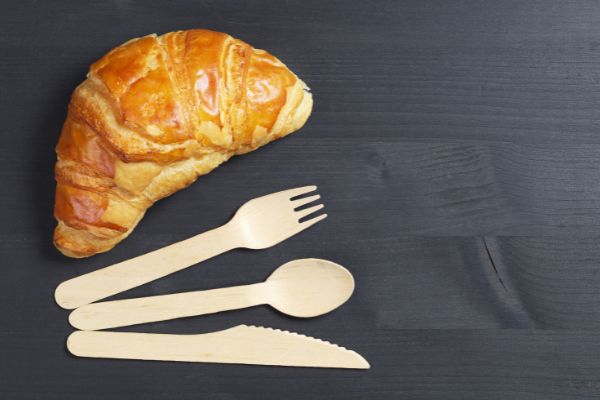How Long Does Wooden Cutlery Last?
How Long Does Wooden Cutlery Last?
A good question for wooden cutlery owners is how long they last. While it is impossible to answer the question with one simple answer, wood has many benefits. For starters, wood is 100 percent renewable, and fast-growing trees mature in as little as 12 years. This means that you can use the same cutlery for years to come, without worrying about the environment. Another benefit of wood products is that they absorb CO2 and create habitats for wildlife. Plus, you don't have to worry about using chemicals on the cutting boards or other wooden utensils.

When it comes to hygiene, wood utensils are an excellent choice. This type of cutlery decomposes quickly, so they don't need special cleaning. If you're worried about food poisoning, wooden utensils are also a great choice. The wood will absorb water, but it won't soak up any nutrients. This means that your utensils will last a lot longer.
Another benefit to using wood utensils is their compostability. These items decompose in about 90 days and are therefore completely biodegradable. Because they do not contain plastic, you can put them in your home compost bin. Unlike plastic, these utensils will decompose and produce nutrient-rich soil. And unlike plastic, they won't get stuck in the small cracks and cause other problems.
Wooden utensils are also a good choice if you are concerned about the environmental impact. While bioplastic utensils can be recycled, their environmental impact of them is still substantial. By contrast, wood utensils do not need any special processing. Instead, they can be tossed into your home compost bin and completely decompose in around 90 days. While wood doesn't decompose as quickly as plastic, it remains a rich source of nutrients for your plants. And unlike plastic, it will never get mixed with plastic bits and end up polluting our environment.
The life span of wooden utensils is not that high, but it is worth the expense. They don't have to be thrown away because they discolor and lose their luster. But they will last a lot longer if you do. And you can save yourself a lot of money, too. If you are concerned about the environment, you can choose to buy bioplastic utensils.
When it comes to composting, the use of wooden utensils is a great option because it is biodegradable. In 90 days, they will break down in the earth's soil. You can also use them to grow organic vegetables and fruits. And when you're done, wooden utensils can be tossed into your home compost bin. It won't get mixed up with plastic bits!
Unlike bioplastic utensils, wood utensils do not need to be cleaned every time you eat. They will decompose in about 90 days. During this time, they will be fully compostable. You can use them again as often as you need to. However, it's important to keep them clean. The longer they stay in the compost, the better.
You can extend the life of wooden cutlery by preserving the wood and oil. You can also add a protective layer of oil over them. By doing so, you can ensure that the wood is not affected by bacteria and will last for a long time. Moreover, wooden utensils are biodegradable. They do not absorb water and do not need to be stored overnight. In fact, wood utensils can be stored for a long time.
In addition, wood utensils are fully compostable. You can dispose of them easily. The wooden utensils are fully compostable in ninety days. They will last you a long time. Then, you can keep the food and water out of your wood utensils by storing them separately. The oil will not affect the taste of the food.
There are different types of oil that you can use on wooden utensils. You can use Linseed oil to protect your utensils and keep them looking new. The oil prevents the wood from drying out, which can cause it to splinter. A good way to preserve wooden utensils is to apply them with vegetable-based wax. If you don't do that, you can use a food-based coating.







